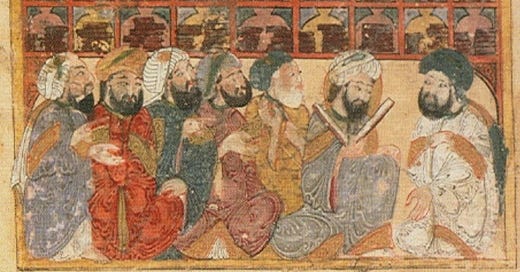Today in 763 (or possibly in 766), Harun al-Rashid was born. He was the fifth Abbasid caliph, reigning from September 786 until his death in March 809, ruling an empire reaching from the western Mediterranean to India

Harun established the legendary library Bayt al-…
Keep reading with a 7-day free trial
Subscribe to This Month In the History of Information Technologies to keep reading this post and get 7 days of free access to the full post archives.



